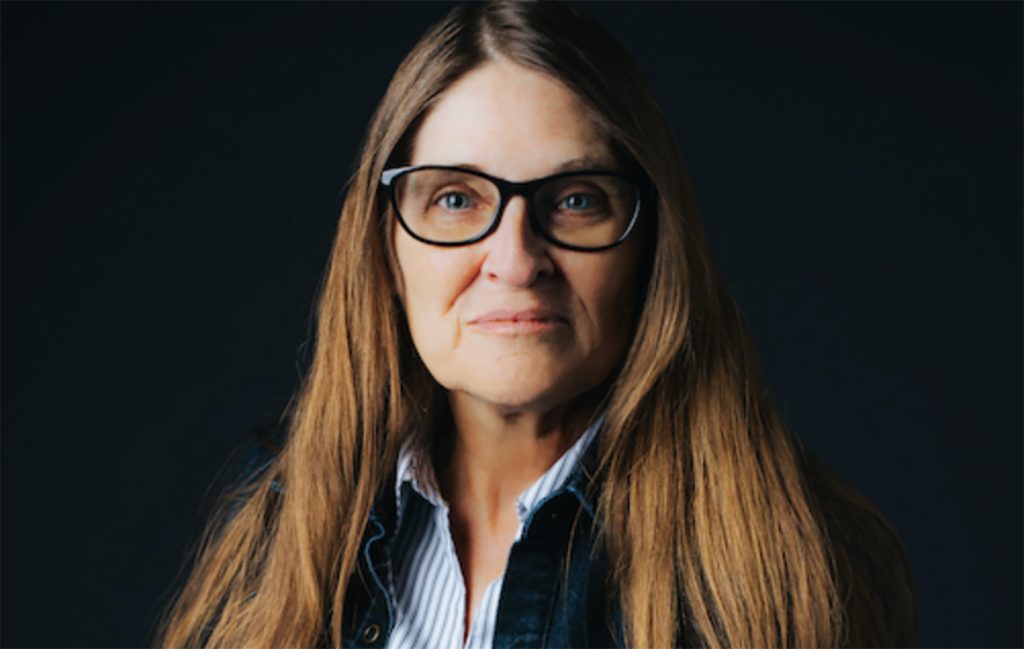By Alliance Communications Coordinator Amy Durr
November tends to be a time when many Americans focus on family. Thanksgiving in particular can be a day of joy or anguish, reveling in companionship or opening up old wounds and political strife.
We all know the aftermath of the “first Thanksgiving,” and this can be a particularly difficult “holiday” for many Native Americans.
As we are celebrating Native American Heritage Month, I explored a wide range of deeply moving First People poems. I was surprisingly confronted by the journey poet, writer, performer, editor and literary activist Allison Hedge Coke took me on in her powerful poem America, I sing you back. Her first person/third person insights about both her and our world have continued to resonate.
Despite her tough yet sensitive and forgiving outlook, I was left with a sense of hope and possibility for living and seeing in a new way. As she told PBS, “Indigenous people want to see harmony restored to the Earth.” It’s at once a bold statement, a hopeful vision and a longed-for rebalancing. These ideas are beautifully articulated in her hospitable poem.
Allison Hedge Coke has worked as a mentor and teacher with Native Americans “on reservations, in urban areas, in juvenile facilities, mental institutions, and in prisons” and several other at-risk youth communities. She came of age cropping tobacco and working fields, waters and working in factories.
She earned an AFAW in creative writing on the old Institute for American Indian Arts campus in Santa Fe, attended two Jack Kerouac School of Disembodied Poetics Summer Writing Programs (on invited fellowships), and earned an MFA from Vermont College (1995).
The Joy, Sorrow and Forgiveness of the US as Unrepentant Child
“During the disruption of the land, the mother is waiting for the child to accept advice,” Hedge Coke, who is of mixed heritage, explains of her poem. “The child is going through its toddler or adolescent stage when it’s acting out. But the mother knows the child will accept reason. And then it will be time to reclaim the beauty of the Earth, the reverence, the peace and harmony.”
Hedge Coke uses the imagery of a mother singing to her child, and then waiting for the child to mature and enter a time of reason. She says the poem was born not out of anger but concern for what she saw happening in the United States 12 years ago. She said she was especially alarmed by the greediness of politicians to take natural resources from the land, according to PBS.
I find her poem to be incredibly moving and generous. The fraught emotion of the mother-child bond illustrates the complex, painful and deeply respectful relationship between Native Americans and the stolen land we now call the US. Hedge Coke is kind enough to give us a way forward, continuing to sing.
“There’s always something at work beyond us. No matter how bad things get, there’s a way to make things over. There’s a way to add love, to restore balance again,” Hedge Coke reassures us.
I hope we can all absorb her nuanced perspective and that it can go deep into her profound questions and long-needed self-reflection this Thanksgiving. And may we too have love and restore balance.
America, I Sing Back By Allison Adelle Hedge Coke
for Phil Young, my father, Robert Hedge Coke, Whitman, and Hughes
America, I sing back. Sing back what sung you in.
Sing back the moment you cherished breath.
Sing you home into yourself and back to reason.
Oh, before America began to sing, I sung her to sleep,
held her cradleboard, wept her into day.
My song gave her creation, prepared her delivery,
held her severed cord beautifully beaded.
My song helped her stand, held her hand for first steps,
nourished her very being, fed her, placed her three sisters strong.
My song comforted her as she battled my reason
broke my long held footing sure, as any child might do.
Lo, as she pushed herself away, forced me to remove myself,
as I cried this country, my song grew roses in each tear’s fall.
My blood veined rivers, painted pipestone quarries
circled canyons, while she made herself maiden fine.
Oh, but here I am, here I am, here, I remain high on each and every peak,
carefully rumbling her great underbelly, prepared to pour forth singing—
and sing again I will, as I have always done.
Never silenced unless in the company of strangers, singing
the stoic face, polite repose, polite, while dancing deep inside, polite
Mother of her world. Sister of myself.
When my song sings aloud again. When I call her back to cradle.
Call her to peer into waters, to behold herself in dark and light,
day and night, call her to sing along, call her to mature, to envision—
Then, she will make herself over. My song will make it so
When she grows far past her self-considered purpose,
I will sing her back, sing her back. I will sing. Oh, I will—I do.
America, I sing back. Sing back what sung you in.

